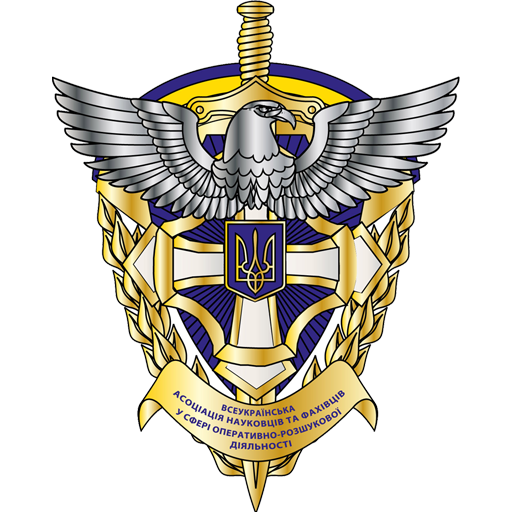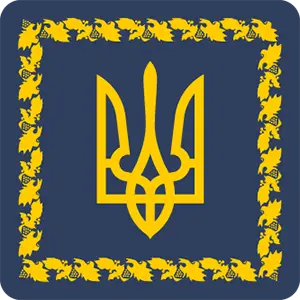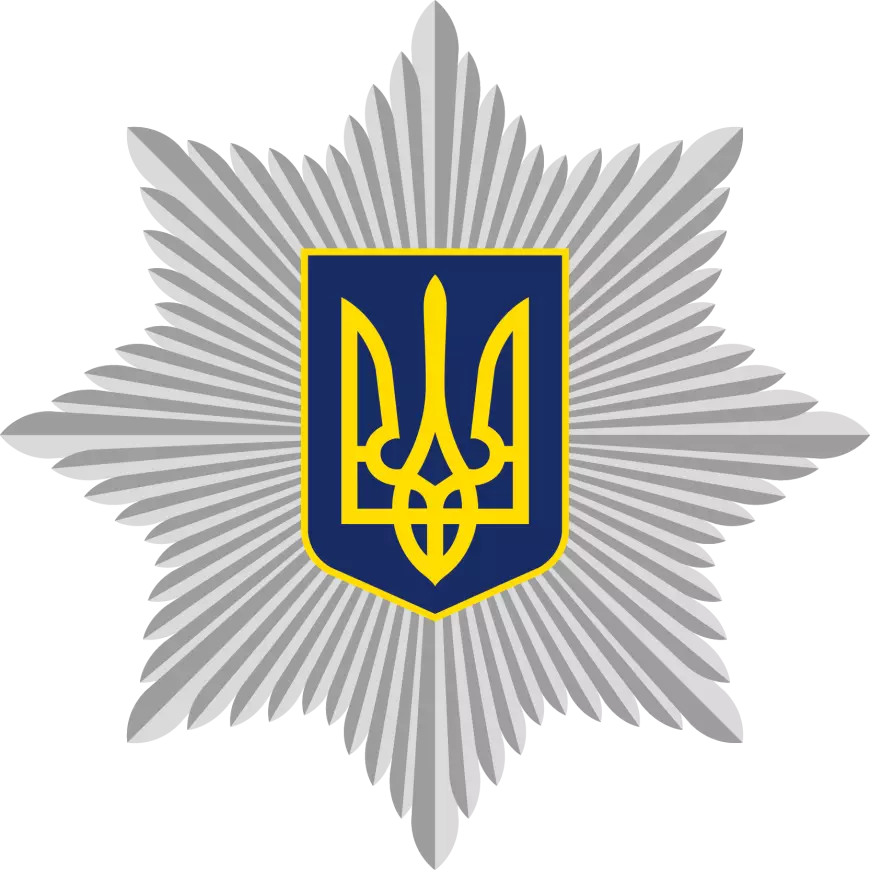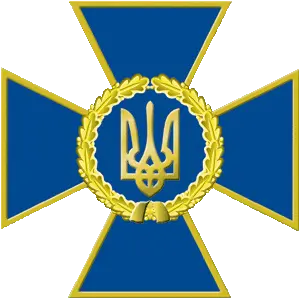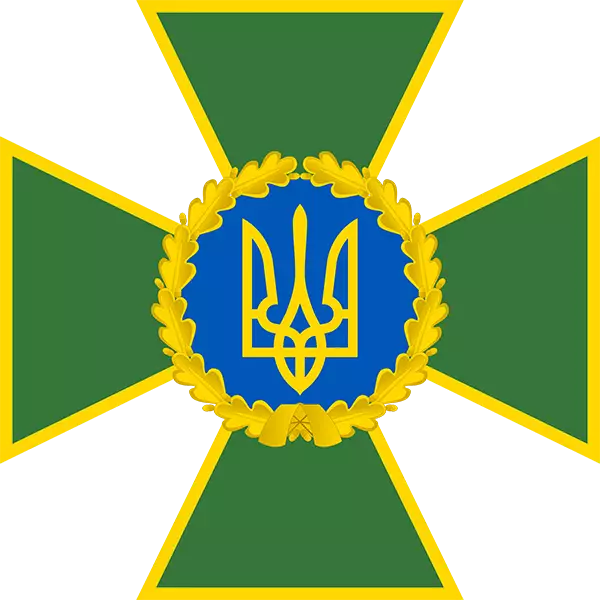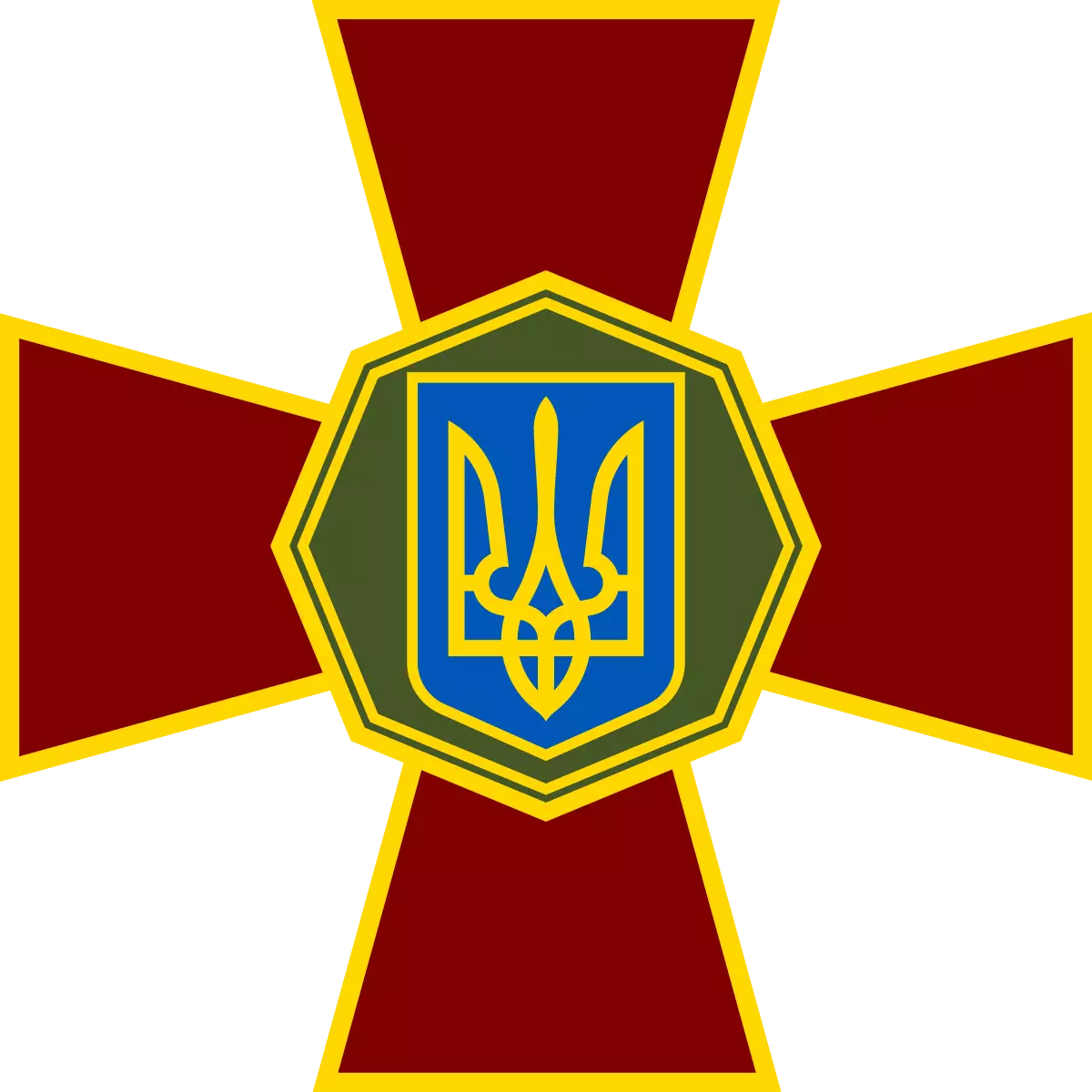All news

COOPERATION WITH THE GERMAN EDUCATIONAL ASSOCIATION “SONNENBERG KREIS” AND THE AUSTRIAN EXAMINATION CENTER “ÖSD-ODESSA”
Representatives of the All-Ukrainian Association of Scientists and Specialists in the Field of Operational and Investigative Activities participated in the inaugural seminar on the topic “Reforms in the Police of Ukraine”. The event was held at Impact Hub Odessa at the initiative of the Austrian Examination Center “ÖSD-ODESSA”.
At the beginning of the meeting, the head of the Austrian Examination Center "ÖSD-ODESSA" Liliya Martynenko presented to the seminar participants the opening of the branch of the German Educational Society "Sonnenberg Kreis" in Odessa and spoke about the main areas of its activity.
Directly during the seminar, the Deputy Chairman of the Association Serhiy Albul focused on the model of training police personnel in the conditions of the reform of the Ministry of Internal Affairs of Ukraine, which is based on a combination of education and practical training. He noted that the peculiarity of the model is that obtaining each subsequent educational and qualification level alternates with service in a position corresponding to the level obtained. That is, there is a constant increase in the professional level, which will positively affect the quality of work of both the police officer himself and the law enforcement agency as a whole.
The current state of ensuring gender equality, combating domestic violence, and protecting children's rights was informed by Viktoria Tomina, Associate Professor of the Department of Administrative Law and Administrative Process of the Odessa State University of Internal Affairs, who focused in detail on the areas of reform and the results of activities to implement the gender policy of the Ministry of Internal Affairs, in particular cooperation with EUAM and OSCE experts, public administration bodies, and public organizations, and also spoke about the activities of the Gender Education Center, which operates at the Odessa State University of Internal Affairs.
The importance and necessity of educational career guidance work, in particular educational activities among the population, was revealed in her report by Oksana Yurochko, a leading specialist of the university's public relations department.
The Association member - head of the laboratory, police major Karen Ismaylov, familiarized those present with the activities of the research laboratory on problematic issues of criminal analysis of the ODUVD, focusing on the tasks of the unit, the introduction of criminal analysis into the educational process, and also noting that in order to staff the operational units of the National Police, the university will recruit students for training in the specialization "Criminal Analysis" with the specialty "System Analysis" in the field of knowledge "Information Technologies".
Following the event, the seminar participants received certificates from the German educational society "Sonnenberg Kreis".
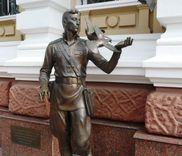
THE LEGEND OF CRIMINAL DETECTION IN THE HISTORY OF THE ODUV
The legend of the Odessa region’s criminal investigation department, the one who became the prototype of David Gotsman in the crime series “Liquidation”, whose monument is installed near the building of the Main Directorate of the National Police in the Odessa region – David Kurlyand once taught at our university.
David Mikhailovich (Mendelevich) Kurlyand, Deputy Head of the Criminal Investigation Department of Odessa, was born on February 1, 1913 in Odessa. He began working in the internal affairs bodies in 1934.
David Kurlyand was the youngest of three children in a family that lived in Moldavanka at 37 Sadikovska Street. His parents were born in Vilnius, from where they came to Odessa. His father, a builder and stove-maker, died when David was only seven years old. For some time he was raised in orphanage No. 8 (at first it was located at 8 Maly Provluk, and then in house No. 20 on Pyshonivska Street). The time of rampant crime, numerous gangs like Mykhailo Vinnytskyi "Yaponchik", who ruled the city, was long forgotten in his memory. And the orphanage boys knew about the world of crime firsthand. Apparently, even then David Kurlyand decided that he would fight crime.
During World War II, D.M. Kurlyand took an active part in the defense of the city of Odessa, for which he was awarded the medal "For the Defense of Odessa" for No. 300. He worked for a long time in Uzbekistan, where in Tashkent and Fergana he held the position of head of the criminal investigation department. And this - at the age of twenty-eight! In 1943, he returned to Odessa with the troops.
There was a lot of work for the criminal investigation department: post-war Odessa was covered by a wave of crime. The situation was catastrophic. Ruin and hunger reigned everywhere. Deserters, former police officers who were still threatened with execution and had nothing to lose, simply homeless people - they all flooded the city and made the lives of citizens impossible. The availability of weapons, stolen and captured, made numerous gangs even more dangerous. Among many others, a gang of robbers led by a former athlete nicknamed "Tarzan" operated in Odessa, and a gang that drove American Dodge cars terrorized the villagers on the roads of the region. There was also an armed gang called "Black Cat".
At that time, David Mikhailovich worked as an assistant to the chief of operations; chief of operations; head of the criminal investigation department; deputy head of the Criminal Investigation Department of Odessa. He personally participated in the neutralization of the bandit formations that were operating in Odessa at that time. Colleagues called him the “chief detective”, “professor of special operations”, and criminals called him the “Odessa wolfhound”. With his direct participation, a large number of crimes were solved, including: the “Werewolf” case, the counterfeiters’ case, the “Governor” case, the Marushchak case, the “Black Cat” case, the “Dodge” case, the “Odessa Tarzan” case, etc. Many of the cases solved by David Kurlyand were later reflected in adventure films and books.
David Kurlyand left a diary of memories, where he told how they fought against the criminal element in post-war Odessa. Perhaps this interesting document and the no less interesting biography of its author would have remained known only to specialists, if not for the greatest of all arts – cinema. Memories of D.M. Kurlyand became one of the sources on which the script of the popular TV series "Liquidation" was based, and the person of David Mikhailovich himself became the prototype of the main character - the storm of criminals David Markovich Gotsman.
He was one of those whose efforts created the National Museum of the History of Internal Affairs Bodies of the Odessa Region (14 Yevreyska Street), collected thousands of unique exhibits, including those in memory of comrades who died during their service. There you can now see the awards of David Kurlyand himself, and his service weapons.
It is noteworthy that David Kurlyand had a direct relationship with our university, at that time - the Odessa Special Secondary School of Militia. As a practitioner and professional, he gave lectures to cadets on special disciplines, in particular on operational and investigative activities. This is confirmed by the materials contained in the State Archive of the Odessa Region.
David Mykhailovych Kurlyand died on July 28, 1993 and was buried at the Trinity Cemetery in Odessa.
In 2008, near the building of the Main Directorate of the Ministry of Internal Affairs of Ukraine in the Odessa region (today - the Main Directorate of the National Police in the Odessa region), as a sign of gratitude to the operatives of the Odessa Criminal Investigation Department, a monument was erected (sculptor Oleksandr Tokarev, architect Volodymyr Glazyrin), which is popularly called the monument to David Kurlyand.
Based on materials from open sources.
Photo from the State Archives of Odessa Region.

Members of the Association visited Brussels on a working visit
Visit to Brussels as part of a parliamentary delegation. Meeting with OLAF management, representatives of the European Commission and the European Parliament to discuss the launch of the National Bureau of Financial Security in Ukraine.
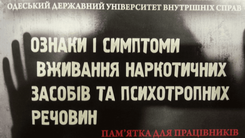
MEMORANDUM FOR NATIONAL POLICE OFFICERS
The illegal trafficking of narcotic drugs and psychotropic substances in Ukraine is becoming increasingly significant, becoming a rather serious social factor that negatively affects the health and well-being of people, the development of society as a whole. The number of people using narcotic drugs and psychotropic substances is increasing sharply. The progressive abuse of them and the sharp increase in prices for such substances create favorable conditions for the formation of organized criminal groups engaged in illegal drug trafficking.
In their professional activities, employees of the National Police of Ukraine are faced with a number of issues, the solution of which requires highly professional training. In particular, this concerns the issues of identifying signs and symptoms of drug use by individuals.
It is to assist employees of the practical units of the National Police of Ukraine in identifying the main signs and symptoms of the use of narcotic drugs and psychotropic substances by members of the Association - employees of the Odessa State University of Internal Affairs, a memorandum was issued:
Signs and symptoms of the use of narcotic drugs and psychotropic substances: a memorandum for employees of the National Police / compiled by S.V. Albul. - Odesa: ODUVS, 2018.
The materials will be useful for employees of the practical units of the National Police of Ukraine, as well as cadets, students and teachers of educational institutions that provide training, retraining and advanced training for employees of the National Police of Ukraine.
Copies of the memorandum have been sent to the practical units of the National Police and the Centers for Initial Professional Training "Police Academy".
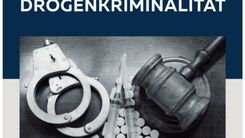
NEW POLICE MANUAL IN GERMAN
Illicit trafficking in narcotic drugs, psychotropic substances, their analogues or precursors causes significant harm not only to the health of the population and the gene pool of the nation, but is also a real and serious threat to the national security of any state. According to Art. 7 of the Law of Ukraine “On the Fundamentals of National Security of Ukraine”, at the present stage the main real and potential threats to the national security of Ukraine, stability in society are: in the sphere of state security – the possibility of illegal importation of narcotic drugs into the country; in the social and humanitarian spheres – the spread of drug addiction. Thus, the main directions of the state policy on the national security of Ukraine are: concentration of resources and strengthening of coordination of the activities of law enforcement agencies of Ukraine to combat drug crime.
In turn, training employees of the units for combating drug crime of the National Police is one of the main tasks of higher education institutions with specific training conditions of the Ministry of Internal Affairs of Ukraine. Therefore, the main goal in developing the manual was the authors' desire to reflect in an accessible form the main provisions on combating crimes in the sphere of trafficking in narcotic drugs, psychotropic substances, their analogues or precursors.
In order to develop communicative competence, the ability of police officers to conduct intercultural communication with native speakers, and to generally increase interest in learning a foreign language, a new manual for police officers, "Drugs and Drug Crime," has been prepared at the Odessa State University of Internal Affairs, which is published in German:
Drogen und Drogenkriminalität / S.V. Albul, A.G. Botschewar. – Odessa: Odessa Staatlicher Universität für Innere Angelegenheiten, 2018. – 102 S.
The materials of the manual can be used in preparation for classes in the academic discipline "Foreign Language for Professional Purposes".
The materials will be useful for cadets, students and teachers of higher education institutions of the Ministry of Internal Affairs of Ukraine, as well as practical workers of the National Police of Ukraine.
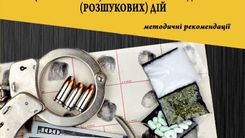
METHODOLOGICAL RECOMMENDATIONS ON COMBATING DRUG CRIME
Illicit trafficking in narcotic drugs, psychotropic substances, their analogues or precursors causes significant harm not only to the health of the population and the gene pool of the nation, but is also a real and serious threat to the national security of any state. According to Art. 7 of the Law of Ukraine “On the Fundamentals of National Security of Ukraine”, at the present stage the main real and potential threats to the national security of Ukraine, stability in society are: in the sphere of state security – the possibility of illegal importation of narcotic drugs into the country; in the social and humanitarian spheres – the spread of drug addiction. Thus, the main directions of the state policy on national security of Ukraine are: concentration of resources and strengthening of coordination of the activities of law enforcement agencies of Ukraine to combat drug crime.
Training of employees of units for combating drug crime of the National Police is one of the main tasks of higher education institutions with specific training conditions of the Ministry of Internal Affairs of Ukraine. In order to methodologically ensure high-quality training of future police officers, the Odessa State University of Internal Affairs has developed methodological recommendations:
Crimes in the field of trafficking in narcotic drugs, psychotropic substances, their analogues or precursors: tactics for conducting individual investigative (search) and covert investigative (search) actions: methodological recommendations / S.V. Albul, S.V. Andrusenko. – Odesa: ODUVS, 2018. – 100 p.
The main goal in developing methodological recommendations was the authors’ desire to reflect in an accessible form the main provisions regarding the features of the methodology for training and tactics for conducting individual investigative (search) and covert investigative (search) actions in criminal proceedings on crimes in the field of trafficking in narcotic drugs, psychotropic substances, their analogues or precursors.
The work was carried out in accordance with the List of priority areas of scientific support for the activities of the internal affairs bodies of Ukraine for the period 2015-2019, approved by the Order of the Ministry of Internal Affairs of Ukraine dated March 16, 2015 No. 275, the topics of scientific research of the Odessa State University of Internal Affairs - “Priority areas of development and reform of law enforcement agencies in the context of the deployment of democratic processes in the state” (state registration number 0116U006773), the topics of scientific work of the Department of Operational and Investigative Activities of the State Internal Affairs Department “Problems of operational and investigative counteraction to organized criminal activity” (state registration number - 0114U004019).
The materials of methodological recommendations will be useful for cadets, students and teachers of higher education institutions of the Ministry of Internal Affairs of Ukraine, as well as practical workers of the National Police of Ukraine.
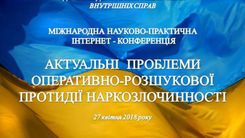
SCIENTIFIC RESEARCH OF CURRENT PROBLEMS OF OPERATIONAL AND INVESTIGATIVE ACTIONS TO COMBAT DRUG CRIME
On April 27, 2018, the Odessa State University of Internal Affairs hosted the International Scientific and Practical Internet Conference “Current Problems of Operational and Investigative Counteraction to Drug Crime”.
The conference was attended by scientists, associate professors, postgraduate students, applicants, cadets, students and practicing lawyers.
The purpose of the conference was to study the problems of operational and investigative counteraction to crimes in the field of illicit drug trafficking and ways to overcome them in modern conditions.
It should be noted that combating the illicit trafficking of narcotic drugs, psychotropic substances and precursors is considered one of the priority areas of law enforcement agencies, as it is known that the constantly increasing rates of drug addiction, the formation of specialized organized criminal groups engaged in drug trafficking, a significant increase in the number of criminal acts committed under the influence of narcotics or in the sphere of drug trafficking pose a threat to the safety and health of the entire society. In this regard, it is relevant to consider countering drug crime through operational and investigative activities.
The conference was an opportunity for both scientists and practitioners to discuss existing problems related to countering modern drug crime. Science and practice should continue to go hand in hand. This event was held today to improve the theoretical and practical skills of law enforcement officers and to obtain answers to problematic issues of countering drug crime.
The following areas of work of the conference were defined:
— Problems of the theory of operational and investigative activities of the National Police of Ukraine.
— Areas of operational and investigative counteraction to drug crime.
— Current problems of training employees of drug crime counteraction units of the National Police.
Based on the results of the conference, a collection of reports and abstracts was prepared, which will be posted on the official website of the Odessa State University of Internal Affairs.

CURRENT PROBLEMS OF OPERATIONAL AND INVESTIGATIVE ACTIONS TO COMBAT DRUG CRIME
Under this title, an International Scientific and Practical Internet Conference will be held at the Odessa State University of Internal Affairs on April 27, 2018.
Scientists, associate professors, postgraduate students, applicants and practicing lawyers are invited to participate in the conference.
The purpose of the conference is to study the problems of operational and investigative counteraction to drug-related criminal activity and ways to overcome them in modern conditions.
Areas of work of the conference:
— problems of the theory of operational and investigative activities of the National Police of Ukraine;
— directions of operational and investigative counteraction to drug crime;
— current problems of training employees of drug crime counteraction units of the National Police.
Based on the results of the conference, a collection of reports and abstracts will be posted on the official website of the Odessa State University of Internal Affairs. An electronic version of the collection of materials will be sent to the authors.
The conference organizing committee accepts scientific reports of up to 5 pages of text in A4 format, margins of 2 cm, Times New Roman font No. 14, line spacing of 1.5. The work must concern a current theoretical problem or practical issues and be related to the topic of the conference. The title of the report is in capital letters in the middle of the line; below, after 1 interval on the right, the name, patronymic, surname of the author, academic degree, academic title, position, place of work and information about the scientific supervisor (for persons who do not have an academic degree); then, after 1 interval, the text. The list of sources used (without repetitions) is drawn up at the end of the text under the title "Literature". In the text, references are indicated in square brackets with the serial number of the source in the list, after a comma - the page number. The author is obliged to check all quotations with the original sources, the editorial board does not check the factual material, only grammatical and punctuation errors are edited. The list of references is presented in alphabetical order.
Materials for participation in the conference must be sent to the organizing committee's email address: ordodessa@ukr.net with the note (to the International Scientific and Practical Internet Conference "Current Problems of Operational and Investigative Counteraction to Drug Crime").
The conference organizing committee does not edit materials, but reserves the right to reject materials that do not meet the conference guidelines and format requirements.
PHONE NUMBER FOR INFORMATION:
(097) 012-98-70 – Lecturer of the Department of Operational and Investigative Activities, Candidate of Laws, Shchurat Taras Grigorovich;
(048) 709-50-88 – Department of Organization of Scientific Work of the Department of Internal Affairs.
Participation in the conference is free of charge.
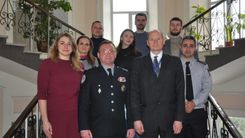
"CRIMINAL ANALYSIS IS A GUARANTEE OF EFFECTIVE POLICE WORK AND CITIZENS' SAFETY": TRAINING FOR LAW ENFORCEMENT OFFICERS WAS HELD AT THE ODUVIA
At the Odessa State University of Internal Affairs, a three-day training was held on the basis of the research laboratory on problematic issues of criminal analysis for employees of the drug crime counteraction department of the Main Department of National Police of the Odessa region on the topic "Use of criminal analysis in the detection and investigation of crimes in the field of illicit drug trafficking committed with the use of information technologies."
The speakers of the training were representatives of the Department of Cybersecurity and Information Support, the Research Laboratory for Problematic Issues of Criminal Analysis of the University, and the Cyber Police Department of the National Police of Ukraine.
The training topics were as close as possible to the needs of practitioners and included the following positions:
1. General issues of using information technologies when detecting crimes in the field of illicit drug trafficking:
— computer information, methods of its storage and transmission;
— the use of information technologies in the field of combating crimes related to the illegal circulation of narcotic drugs.
2. Updates in criminal analysis in combating drug crime.
3. Documentation of crimes related to the illegal circulation of narcotic drugs committed using high information technologies:
— the Internet as a platform for the sale and distribution of narcotic drugs;
— conducting specialized measures to identify facts of illegal drug trafficking on the Internet;
— searching, selecting and collecting information obtained from publicly available sources and its analysis.
4. Investigative (search) actions and other additional measures in criminal proceedings in the field of combating crimes related to illegal drug trafficking:
— the concept of “electronic evidence”, its collection, relevance and admissibility;
— general aspects of examining computer devices during investigative actions;
— review of the contents of computer drives and analytical work with the obtained data;
— conducting events with mobile devices.
Upon completion of the training, the Vice-Rector of the University, Candidate of Law, Associate Professor, Police Lieutenant Colonel Andriy Kholostenko, congratulated all participants on the successful completion of the training and presented the relevant certificates.
In turn, representatives of the European Union Advisory Mission, namely: Senior Adviser on the Prosecutor's Office of the EUAM Gediminas Bučunas and Specialist on the Reform of the Prosecutor's Office of the EUAM Alena Reshetova, who were also present during the ceremonial presentation of certificates, expressed their support and readiness for further fruitful cooperation, which will contribute to improving the qualifications of current employees of the Odessa State University of Internal Affairs and employees of the National Police of Ukraine.
The training was held effectively - in a working and at the same time friendly atmosphere, and the proper organization of the event and the high level of trainers allowed us to work fruitfully and gain new knowledge.

A RESEARCH LABORATORY ON PROBLEM ISSUES OF CRIMINAL ANALYSIS HAS BEEN CREATED AT THE ODESSA STATE UNIVERSITY OF INTERNAL AFFAIRS
A Research Laboratory on Problematic Issues of Criminal Analysis has been established at the Odessa State University of Internal Affairs with the technical support of the European Union Coordination Mission.
The Laboratory is a specially authorized structural unit of the University for conducting, organizing and coordinating information-search and analytical work aimed at collecting, evaluating and analyzing information. The Laboratory develops, implements and applies new methods and directions of criminal analysis aimed at increasing the effectiveness of combating crime. If necessary, the Laboratory organizes retraining (advanced training) and provides practical assistance to the bodies of the National Police of Ukraine.
The main tasks of the Research Laboratory are:
— providing scientific, practical, consulting and other types of services on the problems of implementing criminal analysis to the Ministry of Internal Affairs of Ukraine and other law enforcement agencies;
— carrying out information-analytical activities regarding information of interest to the units of the National Police;
— identification and assessment of criminal threats to the individual, society, and the state, the purpose of which is to determine priorities and form management decisions on preventing criminal offenses and combating crime;
— implementation of an information and analytical system designed for criminal analysis and software for processing, integrating, analyzing, and storing information, using all available databases (banks) of the Ministry of Internal Affairs and the National Police of Ukraine;
— submission to the Ministry of Internal Affairs of Ukraine of proposals for the development of draft legislative, regulatory, and organizational and administrative acts, information and analytical products, methodological recommendations on the development and use of the criminal analysis system in the activities of the National Police of Ukraine;
— publication of the results of the Laboratory's activities and their implementation in practical activities and the educational process, ensuring patent and licensing work;
— organization and conduct of trainings and practical classes with employees who carry out criminal analysis in their activities in order to apply the best world practices in this area, etc.
The main functions of the research laboratory are:
— carrying out information and analytical activities regarding information of interest to law enforcement agencies;
— providing proposals for the formation and modernization of automated information, telecommunication and other systems;
— improving the activities of the units of the National Police of Ukraine in the field of applying criminal analysis to combat crime;
— developing proposals for the optimization and development of national legislation on criminal analysis;
— organizing the educational process in higher education institutions with specific learning conditions using modern developments in the field of introducing criminal analysis in the activities of law enforcement agencies.
